Why opt for Life Synergy for Youth?
Our programs delve deep into the current school environment and the intricate dynamics within families, surpassing superficial approaches. They resonate with the broader community, fostering empowerment for change and life improvement. We provide essential tools to staff, enabling a shared language and minimizing class disruptions.
We explore both the positive and negative consequences of actions, leaving a lasting impact. Most students describe our program as “life-changing,” and staff find it profoundly “thought-provoking.” Notably, staff members have observed substantial shifts in student behavior, positively influencing the school culture.
A conversation with Dwayne can provide a more detailed understanding of our program’s potency.
Life Synergy for Youth offers a holistic approach to addressing bullying and school community challenges. We aim to create an environment where all students comprehend the consequences of their daily choices, fostering a safe learning space. This safety eliminates fear and power imbalances, promoting a culture where students receive recognition for their caring, compassion, respect, understanding, and empathy.
Establishing a Climate of Safety and Respect
Our program actively engages students, educators, and the wider community to eradicate bullying and instill social responsibility, emphasizing respect among all stakeholders. Dwayne Peace, an experienced school consultant, conducts professional development workshops, parent information sessions, school assemblies, and classroom presentations.
Our experience demonstrates that Dwayne’s work in schools reduces bullying, enhances acceptance and compassion, and cultivates a climate of safety and respect within the school community.
Understanding the Scope of the Issue
Here are some important facts about life choices:
- Children under 12 may struggle to differentiate reality from fiction in media, such as video games.
- In Canada, bullying incidents occur approximately every 7.5 minutes on the playground and every 20 minutes in the classroom.
- On average, children and youth aged 5 to 17 had 3 hours of screen time per day (data not shown). Screen time was slightly lower for children (2.5 hours) compared to youth (4 hours) – Statistics Canada – Canadian Health Measures Survey, Cycle 5 (2016 and 2017)
- According to the 2019 Canadian Health Survey on Children and Youth (CHSCY), the majority of Canadian youth aged 12 to 17 (71%) reported experiencing at least one form of bullying in the past twelve months. Bullying is a form of aggression where there is a power imbalance; it is behaviour that makes the person being bullied feel afraid, alone or uncomfortable.
- Among youth who experienced bullying, about two in five (42%) reported experiencing it monthly or more frequently, while 58% reported experiencing bullying a few times a year.
- The most common form of bullying reported by youth was being made fun of, called names or insulted (59%), followed by rumours being spread by others (34%), and being excluded from activities (32%).
- Internet use is a major part of everyday life for young Canadians. The majority (about 80%) said they went online at least weekly, with 60% saying they visited social network platforms several times a day and just over 50% reporting that they used video or instant messenger apps at this same level of frequency. Such online activity can put young people at an increased risk of cyberbullying. (2019 CHSCY)
- In 2019, one in four teens (25%) aged 12 to 17 reported experiencing cyberbullying in the previous year. Being threatened or insulted online or by text messages was the most common form, at 16%. This was followed by being purposefully excluded from an online community (13%) and having hurtful information posted on the Internet (9%).
- Among those aged 12 to 17, rates of cyberbullying increased with age, rising from 20% at age 12 to 27% by age 17. This upswing could reflect increased Internet use—specifically social media usage—with age. The largest increase in cyberbullying prevalence related to being threatened or insulted online or by text messages (from 11% at age 12 to 19% at age 17).
- Excessive screen time, particularly before bedtime, was linked to sleep disturbances and reduced sleep duration among teenagers.
- Parents and educators were increasingly concerned about the potential negative impacts of excessive screen time on teens’ mental health, physical health, and academic performance.





